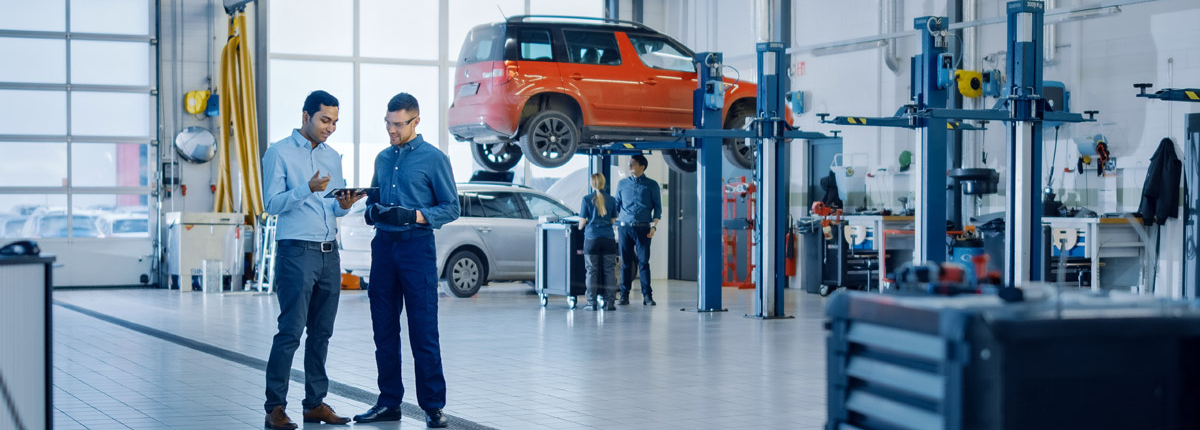Brakes Frequently Asked Questions
At Irvine Brake Center, we do a full service brake inspection to find out what the real cause of your brake issue is and recommend the proper parts and service needed to get your car in top shape and running properly so you can get back to driving your car safely and with peace of mind that your brakes have been serviced standardly.
How to tell if you need new brakes?
Brakes are an obvious necessity for any vehicle, but they can do their job of bringing us to a safe stop quietly and efficiently for thousands of miles without making a sound. Perhaps we sometimes forget about them when going through our standard maintenance procedures.
So, how do you know when it’s time for new brakes? There are a few telltale signs you need new brake pads:
1. Hearing Squealing Noises
If you apply the brakes and hear a high-pitched squeak or squeal, you might worry that something is wrong. It is, however, a standard feature of many brake pads.
There are built-in wear indicators on brake pads that make a high-pitched screeching noise when the pads have been worn down to a certain level.
2. Hearing Grinding Noises
If the pads aren’t changed as they wear out, the vehicle may make a more menacing grinding or growling noise, similar to the metal-on-metal sound. That’s precisely what is happening. At some point, the pad wears out, and the metal caliper scrapes against the rotor disc.
3. Reduced Brake Responsiveness
An increase in stopping distance is a common symptom of deteriorating brake performance. You won’t be able to stop at the same time as you would when your car was performing at its peak. You might find that you have to apply the brakes sooner than usual or that you need to maintain pressure for a more extended period.
4. Derailing
Another indicator of a deteriorating performance is “pulling,” which shows that the brakes need to be serviced when your car’s front end drifts to either side when you brake.
This is a sign that the pads on one side of your vehicle are wearing out faster than the other.
5. Noticeable Vibrations
If your brake pedal shakes when you apply pressure, it could be a sign that your wheels aren’t correctly aligned or that your tires aren’t balanced. Still, it could mean warped rotors. Gentle, consistent braking occurs when the pads and rotors are in alignment. Inconsistencies in the frictional force cause these vibrations between the two surfaces.
How often should I change my brake pads?
The first thing you should know about getting new brakes is that you don’t always have to replace the rotor discs and the pads. Although the disks will wear out and need to be replaced at some point, with regular pad maintenance, that time can be put off. However, if the pads are worn down to nothing, the rotors will be gouged and need replacing.
There is no hard and fast rule for how often you should replace your brakes or how many miles you can drive on a set of brakes before they become inadequate, just as there is no such rule for many other aspects of vehicle maintenance. Many experts advise replacing brake pads every 10,000 to 20,000 miles and rotors every 50,000 to 70,000 miles. Still, these numbers can vary depending on several factors, like your driving habits, materials, and your car’s model.
We recommend that every 5,000 miles, you inspect your brakes and make any necessary repairs, noting them in your vehicle’s maintenance log.
Why does my car shake when I hit the brakes?
Vibrations in the car and the steering wheel can unsettle, especially when performing a task as critical as braking.
Here are some of the reasons your car shakes when you apply the brakes:
- Problems with your brake rotor: when braking, you may feel an unpleasant vibration if one or more of your brake rotors has become “warped.”
- Work brake pads: There’s no avoiding the inevitable wear and tear on brake pads. Also, vibrations could occur if the pads or rotors are worn out.
- Sticking brake calipers: When you apply the brakes, you might feel some vibrations if the caliper or caliper pistons become stuck and can’t squeeze the brake pads against the rotors.
When you apply the brakes and you feel some shaking or vibrating, it’s more than just annoying; it could be a sign of serious wear you want to avoid. If your car is giving you any other trouble, call Irvine Brake Center and schedule an appointment for service.
Why should I service my brake fluid?
Your brake fluid requires regular service because it becomes contaminated by moisture.
How does moisture get into your brake fluid?
Brake fluid is hygroscopic, which means that it magnetically attracts and absorbs moisture from the atmosphere, usually through the brake master cylinder reservoir and permeable brake hoses.
Moisture contamination lowers the boiling point of your brake fluid, so, even under ordinary driving conditions, it could cause the fluid to boil and release vapor into your brake system. When this vapor compresses inside the system, you may find yourself facing one of the most dreaded driving crises a dangerously low brake pedal or even no brake pedal!
Moisture contamination can also result in very costly repairs into the thousands if you have ABS type brakes! When moisture contaminated brake fluid reaches very high temperatures as much as 450 to 500 degrees an electrochemical reaction makes the fluid highly acidic. The acid breaks down the steel line and rubber hoses and can cause early failure of the cast iron and aluminum components in your brakes. Brake fluid contamination has become so much of a concern, some car manufacturers have added brake fluid service to their required maintenance schedules. Let our ASE certified technicians perform this important safety service for you today.

